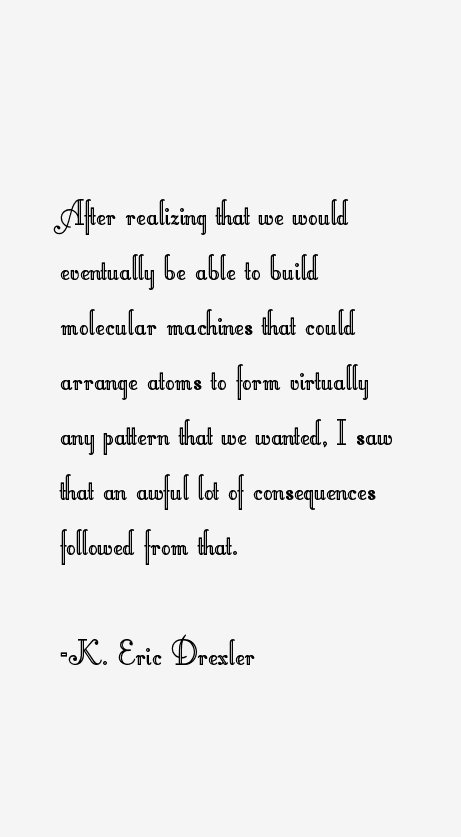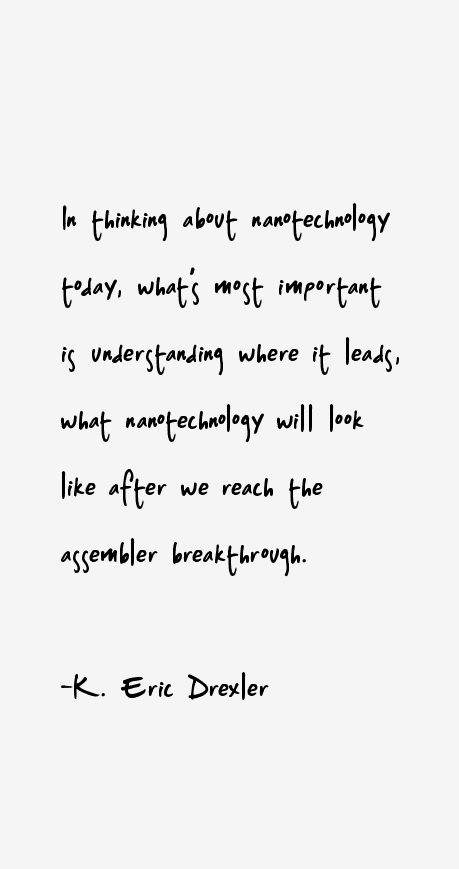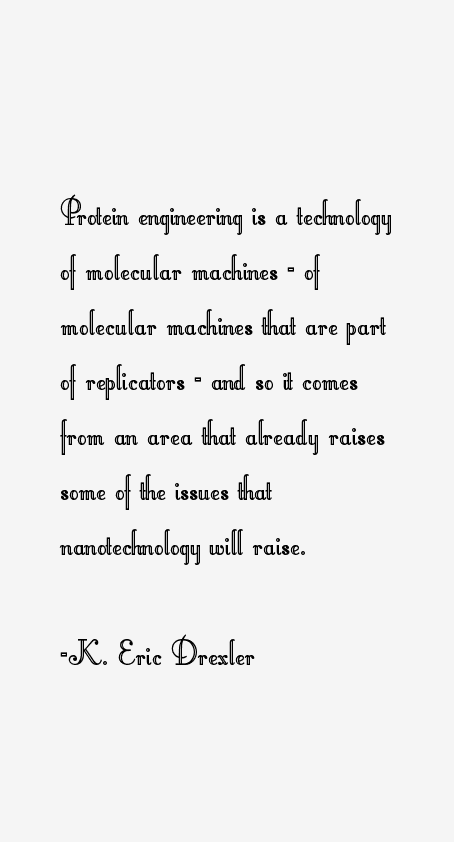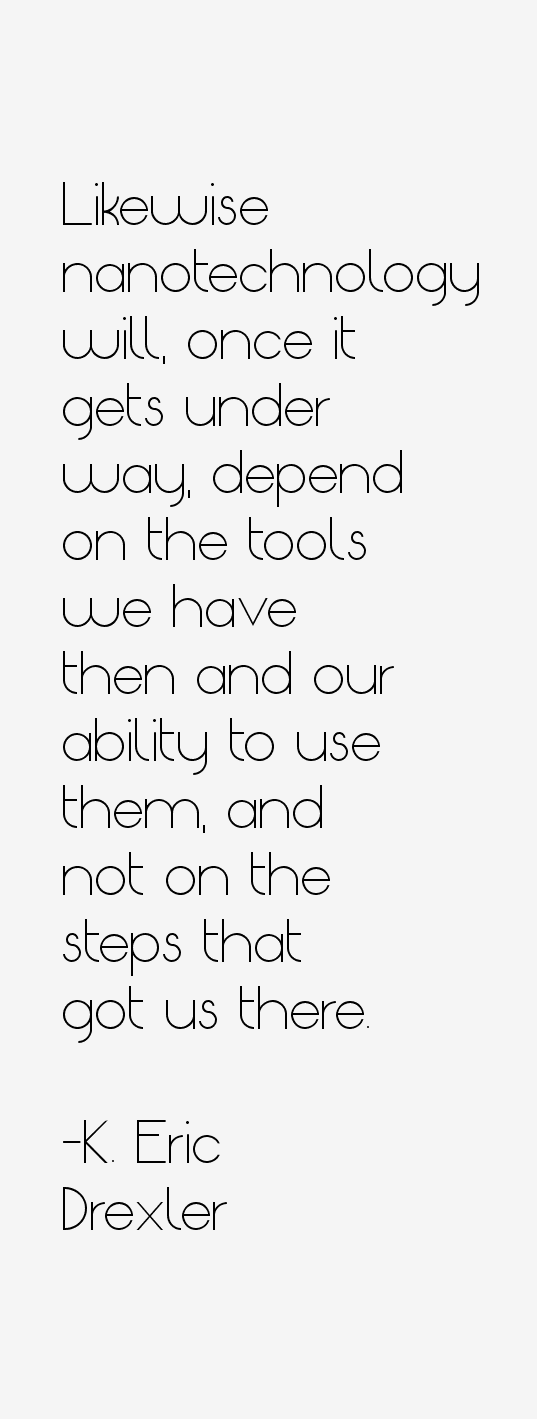K. Eric Drexler Quotes & Sayings
21 most famous K. Eric Drexler quotes and sayings. These are the first 10 quotes we have for him. He's a 70 year old American scientist born on Apr 25, 1955.

“After realizing that we would eventually be able to build molecular machines that could arrange atoms to form virtually any pattern that we wanted, I saw that an awful lot of consequences followed from that.”

“In thinking about nanotechnology today, what's most important is understanding where it leads, what nanotechnology will look like after we reach the assembler breakthrough.”
“I've encountered a lot of people who sound like critics but very few who have substantive criticisms. There is a lot of skepticism, but it seems to be more a matter of inertia than it is of people having some real reason for thinking something else.”
“If you take all the factories in the world today, they could make all the parts necessary to build more factories like themselves. So, in a sense, we have a self-replicating industrial system today, but it would take a tremendous effort to copy what we already have.”
“Today we have big, crude instruments guided by intelligent surgeons, and we have little, stupid molecules of drugs that get dumped into the body, diffuse around and interfere with things as best they can. At present, medicine is unable to heal anything.”

“Protein engineering is a technology of molecular machines - of molecular machines that are part of replicators - and so it comes from an area that already raises some of the issues that nanotechnology will raise.”

“Any powerful technology can be abused.”

“Likewise nanotechnology will, once it gets under way, depend on the tools we have then and our ability to use them, and not on the steps that got us there.”

“The basic parts, the start-up molecules, can be supplied in abundance and don't have to be made by some elaborate process. That immediately makes things simpler.”
“And that because the moving parts are a million times smaller than the ones we're familiar with, they move a million times faster, just as a smaller tuning fork produces a higher pitch than a large one.”
K. Eric Drexler Quotes Rating
No Ratings Yet
Leave A Comment
























